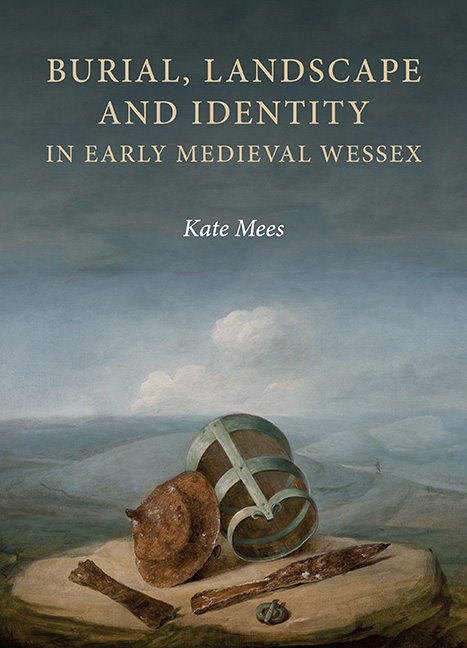Book contents
- Frontmatter
- Dedication
- Contents
- List of Illustrations
- Acknowledgements
- List of Abbreviations
- Note on Period Terminology and Other Definitions
- Introduction: Perspectives, Approaches and Context
- 1 Monument Reuse and the Inherited Landscape
- 2 Topography and Ritual Life
- 3 ‘Britons and Saxons’?
- 4 Land Use, Territoriality and Social Change
- 5 The Church and the Funerary Landscape
- Conclusions
- Appendix: Gazetteer of burial sites in the study area, c. AD 450–850
- Bibliography
- Index
- Anglo-Saxon Studies
Introduction: Perspectives, Approaches and Context
Published online by Cambridge University Press: 24 October 2019
- Frontmatter
- Dedication
- Contents
- List of Illustrations
- Acknowledgements
- List of Abbreviations
- Note on Period Terminology and Other Definitions
- Introduction: Perspectives, Approaches and Context
- 1 Monument Reuse and the Inherited Landscape
- 2 Topography and Ritual Life
- 3 ‘Britons and Saxons’?
- 4 Land Use, Territoriality and Social Change
- 5 The Church and the Funerary Landscape
- Conclusions
- Appendix: Gazetteer of burial sites in the study area, c. AD 450–850
- Bibliography
- Index
- Anglo-Saxon Studies
Summary
This book is about the places in which people living in the nascent Anglo-Saxon kingdom of Wessex buried their dead, and how they came to make those choices. It is about the material elements of the landscapes that they inhabited, with which they interacted and which exerted a dynamic influence on how their lives unfolded. Of course, burial location was guided, at least in part, by practical concerns. How far would mourners be prepared to travel with the corpse? Which areas of land were designated for the disposal of the dead, and who was permitted to use them? These factors, heavily influenced by the nature of the physical environment and cultural milieu, compelled communities to act in certain ways. But burial practices also have the potential to reveal much about how people conceptualised and actively managed their surroundings. The conscious decisions made by mourners contributed to shaping social relations and continually added new layers and accents of meaning to the landscape. The traces on the land that had been left by previous generations, and by the prehistoric and Roman populations before them, provided the reference points and context for the forging of new traditions.
Scant written evidence survives – or indeed was ever produced – to illuminate the lived experiences of the farming communities that occupied Wessex in the half-millennium following the retreat of Roman authority. Yet we know that, for this area of southern England, in common with many other places in Britain and north-west Europe, this was a transformative era. The period spanning the fifth to ninth centuries AD saw the emergence from the obscure ‘tribal’ origins of the powerful West Saxon kingdom, the conversion of its people – at least nominally – to a transformed, continental form of Christianity, and deep-seated changes in societal and landscape organisation. These were not straightforward, linear processes, but rather a series of interdependent paradigm shifts which required a particular set of conditions in order to take root. The society that began to coalesce from around AD 600 can be seen as the cumulative result of both external influences and insular, post-imperial transfigurations.
- Type
- Chapter
- Information
- Publisher: Boydell & BrewerPrint publication year: 2019



